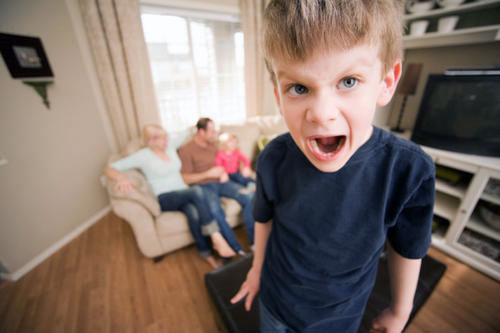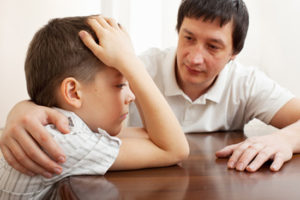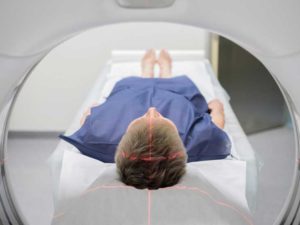 What is required from a parent whose child is suffering from Hyperactivity ? In America, children being labeled with hyperactivity is the most commonly diagnosed mental condition in children. Over the years, most medical journals described similar conditions as minimal cerebral dysfunction, ADD, Hyperactivity , minimal brain damage, and hyperactive child syndrome.
What is required from a parent whose child is suffering from Hyperactivity ? In America, children being labeled with hyperactivity is the most commonly diagnosed mental condition in children. Over the years, most medical journals described similar conditions as minimal cerebral dysfunction, ADD, Hyperactivity , minimal brain damage, and hyperactive child syndrome.
Symptoms
Other symptoms are well-defined and noticeable in kids before the age of six. The symptoms can be categorized into inattentiveness and impulsiveness. The signs of inattentiveness may include short attention span, poor concentration, forgetting things easily, making careless mistakes, problems organizing tasks, impatience, blurting out answers when not asked, and being unable to stick to tasks that are time demanding. The signs of hyperactivity in children include little or no sense of danger, acting without thinking, constantly fidgeting, excessive talking, and difficulty waiting or taking turns. These features are often connected with difficulties in school, in both learning and behavior. Frustration, irritability, agitation, and recklessness are often experienced in tasks that need concentration, thus, making it impossible to complete any task.
The signs of hyperactivity in children include little or no sense of danger, acting without thinking, constantly fidgeting, excessive talking, and difficulty waiting or taking turns. These features are often connected with difficulties in school, in both learning and behavior. Frustration, irritability, agitation, and recklessness are often experienced in tasks that need concentration, thus, making it impossible to complete any task.
Boys are more prone to develop hyperactivity while girls are more prevalent to display symptoms of inattentiveness. Many teenagers who were not diagnosed with abnormal hyperactivity traits as a child tend to be drug addicts, get involved in crime, and eventually become school dropouts. In adulthood, inability to complete tasks, problems with paying attention, inability to start a task, and disorganization are the main features.

Conventional Medical Treatment
The use of pharmaceutical drugs such as Ritalin (methylphenidate) or amphetamine Adderall are the convention treatment methods for hyperactivity in children. According to a review in the Journal of Clinical Psychiatry, two antidepressants (bupropion and venlafaxine) are used for alternative treatment. Combination of “Talk therapy” and prescription medication is often recommended as well.
Alternative Medical Treatment
 A practitioner certified in functional medicine will try and identify the possible triggers of the hyperactivity. Impaired digestion, food and environmental allergies, an imbalance of fatty and amino acids, nutritional deficiencies, and heavy metal toxicities are often associated in children with hyperactivity. Reports also showed that children with hyperactivity frequently have a history of chronic ear infections. Antibiotic use for frequent ear infections can alter the normal gut flora (dysbiosis) and subsequently cause inflammation in the brain.
A practitioner certified in functional medicine will try and identify the possible triggers of the hyperactivity. Impaired digestion, food and environmental allergies, an imbalance of fatty and amino acids, nutritional deficiencies, and heavy metal toxicities are often associated in children with hyperactivity. Reports also showed that children with hyperactivity frequently have a history of chronic ear infections. Antibiotic use for frequent ear infections can alter the normal gut flora (dysbiosis) and subsequently cause inflammation in the brain.
 It is unfortunate that parents whose kids suffer from hyperactivity are not properly informed of all the available options. I agree that prescription medications such as Ritalin and Adderall have a significant impact. Children who take these drugs are now focused and behave well in school. Who wouldn’t want better? However, are you being told everything? What are the long-term health risks for your child?
It is unfortunate that parents whose kids suffer from hyperactivity are not properly informed of all the available options. I agree that prescription medications such as Ritalin and Adderall have a significant impact. Children who take these drugs are now focused and behave well in school. Who wouldn’t want better? However, are you being told everything? What are the long-term health risks for your child?
Research performed on children who use Ritalin using a PET scan showed that even though the symptoms in these children reduced, their PET scan was highly abnormal.
Treating hyperactivity with amphetamine-like drugs is the common practice of most trained physicians. However, for over a long time, nutritionally oriented physicians known food allergies, gut dysbiosis and/or liver toxicity to be the major causes. In 1985 issue of Lancet a prestigious International Medical Journal recorded the first major scientific research that showed the relationship between food allergy and hyperactivity. The effect of food on 76 hyperactive children was studied by Dr. J. Egger, head of a pediatric university hospital in Munich, and Dr. J. Soothill. From their observations, 79% of children showed improvement in mental activity, emotions and behavior, and 28 children became completely normal.To prove their findings, children who were completely normal developed hyperactive symptoms when the researchers reintroduced them to allergenic foods.
The Following Have Been Linked To Children With Hyperactivity:
- Food sensitivities
- Dysbiosis in the gastrointestinal tract
- Imbalances in amino acid
- Deficiency of fatty acids
- Methylation dysfunction
- Heavy metal toxicity
- Liver detoxification issues
 Since there are several causes of hyperactivity in children, investigating the possible factors responsible for this condition would be a huge benefit to the child versus just treating the symptoms. I have not met a parent who did not want the best for their child. The parent who is struggling with what to do to help their child faces a major dilemma. Should you medicate your child or take the road less traveled and identify the underlying cause of your child’s problem? A parent has their family physician who insists that pharmaceutical drugs are the only way to go and offers no real alternative. Then there is the numerous medical research studies that are quite over-whelming in favor of looking for the root cause(s) of your child’s condition.
Since there are several causes of hyperactivity in children, investigating the possible factors responsible for this condition would be a huge benefit to the child versus just treating the symptoms. I have not met a parent who did not want the best for their child. The parent who is struggling with what to do to help their child faces a major dilemma. Should you medicate your child or take the road less traveled and identify the underlying cause of your child’s problem? A parent has their family physician who insists that pharmaceutical drugs are the only way to go and offers no real alternative. Then there is the numerous medical research studies that are quite over-whelming in favor of looking for the root cause(s) of your child’s condition.
At Optum Health Center, we evaluate all of the three main body systems…. hormonal, gastrointestinal, and detoxification, as well as evaluate for food sensitivities and nutritional imbalances. Many times correcting the underlying malfunctioning body system or systems, and adjusting a few lifestyle habits including diet, are enough to make hyperactivity a thing of the past. As we see all too often in practice, each one of these body systems , if not functioning properly, affects the others. These systems do not function independently of each other. This is the main reason we test and help you correct all three of the main body systems to bring about the optimal health you desire for your child.
If your child is experiencing any of the symptoms above and you want help easing through the changes necessary, as well as avoid the side effects of prescription drugs, call our office and set up an appointment today. We would love to help you and your child get your lives back, make school work easier, and return to a more happy and stable social life.

